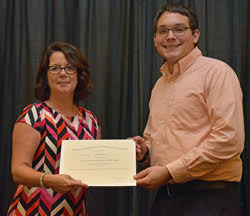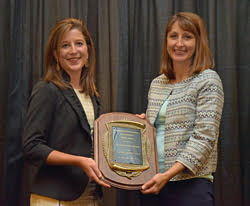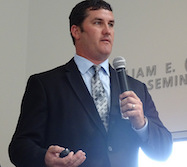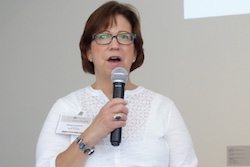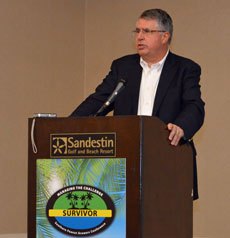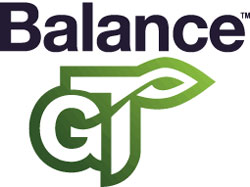 Perhaps when you think of FMC you think of soybeans- but that is changing, says Chris Reat, Corn Product Manger. At the recent Ag Media Summit in St. Louis, Missouri Reat told AgWired they’re expanding their corn sector with a full range of herbicides, insecticides and fungicides.
Perhaps when you think of FMC you think of soybeans- but that is changing, says Chris Reat, Corn Product Manger. At the recent Ag Media Summit in St. Louis, Missouri Reat told AgWired they’re expanding their corn sector with a full range of herbicides, insecticides and fungicides.
When asked about corn crops for this year Reat’s advice was not to discount the value of an application of fungicide or pesticide still this season. With weather being hot and cold, rainy then dry, a grower’s best bet yield potential might involve a round of just the right product.
“Lots of decision to be made yet, even with this crop, this year,” Reat tells Chuck. “I just encourage guys to flexible with their approach and opportunities. If there is still a chance to finish off a crop with a fungicide applications to go ahead and realize the highest yield opportunity then they ought to consider doing it. Even though we have a challenge in the markets, they’re still going to fluctuate, but still it always pays a farmer at the end of the day to get more production out of those acres. We always see those applications pay off.”
Overall, he says, growers are planning more and using products carefully because they are seeing it pay off. A crop is already a tremendous investment, and more and more growers are seeing the wisdom in making it the best crop possible.
To hear more of Reat’s advice listen to Chuck’s full interview here: Chris Reat, FMC



